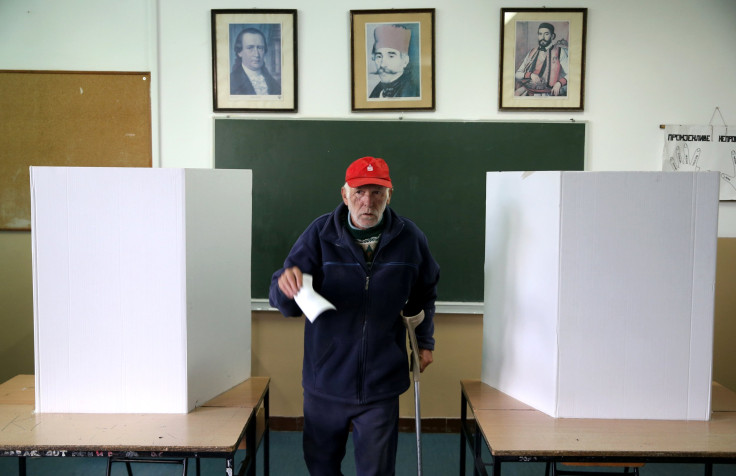Bosnian Serbs To Hold A Disputed Vote Amid Ethnic Tensions

The Bosnian Serbs vote on Sunday in a referendum over a disputed national holiday, defying Bosnia's highest court and Western pressure to call off a process that risks stoking ethnic tensions in the divided Balkan country.
The referendum, on whether to mark Jan. 9 as "Statehood Day" in the Serb Republic part of Bosnia, will be the first since a 1992 plebiscite on secession from then-Yugoslavia that ignited three years of ethnic war in which 100,000 were killed.
Polling stations across the Bosnian Serb-dominated region opened at 7 a.m. (midnight EDT Saturday) and will close at 7 p.m. (noon Sunday EDT). Organizers said the first preliminary results were expected within 48 hours after the vote.
The Sarajevo-based Constitutional Court has ruled that the holiday would be illegal because it coincides with a Serbian Orthodox Christian holiday and so discriminates against Muslim Bosniaks and Catholic Croats living in the Serb Republic. The court also banned the referendum.
Jan. 9 is the date when Bosnian Serbs declared independence from Bosnia in 1992, precipitating the country's devastating war marked by mass killings and persecution of Bosniaks and Croats in the territory they earmarked to become exclusively Serb.
It was Europe's bloodiest conflict since World War II.
The region's government has said it would comply with the court's ruling on the "Statehood Day" and make changes to its law on holidays to ensure it was not discriminating against other peoples — but only after the vote.
"This day is important for me to confirm why I took part in the war and lost my arm," said Novak Kajkut, 45, a war invalid, while waiting to cast his vote in the region's capital of Banja Luka. "We don't dispute the right of the Muslim Bosniaks to mark their holidays but they can neither dispute this right to us."
The Serbs celebrate the holiday by hanging out Serb flags and holding Orthodox Christian ceremonies in public institutions, which non-Serbs say is aimed at excluding them.
Many believe that by defying the court ruling, Bosnian Serb leader Milorad Dodok is aiming to highlight the weakness of post-war Bosnia's central authorities in Sarajevo and set the stage for a vote on secession.
Western diplomats warn that the referendum violates the 1995 Dayton peace accords that ended the Bosnian war.
Some Bosniak politicians said it would weaken Bosnia's delicate structure, created to hold the country together in the aftermath of the devastating war. Many in the Bosniak- and Croat-dominated autonomous region fear that the Serb Republic could be preparing to secede, bringing the future of Bosnia as a whole into doubt.
Talk of a new war has increased tensions, prompting the Serb Republic police to raise the security level at the weekend.
"What's happening brings back memories of what happened in 1992," when the Bosnian war began, said Nusreta Sivac, a Bosniak who was held in a Serb detention camp in the western town of Prijedor during the war.
While the United States, which brokered the Dayton treaty, and the European Union called on the Serb Republic to cancel the vote, fearing instability, Russia supported the plebiscite.
"The West and Russia are choosing sides again — whenever big powers get involved, people suffer," Bosnian Serb opposition leader Mladen Bosic told Reuters.
© Copyright Thomson Reuters 2024. All rights reserved.




















